Paul Manley Back Pain and RSI Clinic
Paul Manley, M.A.O.(Manip), Registered OsteomyologistFor muscle and joint problems

RSM (Royal Society of Medicine)
Specialist in the treatment of Musculo-skeletal problems
Location: 8-10 Boston Place, Marylebone, London NW1 6QH
Next to Marylebone Station, Main line trains and Bakerloo line
19/01/2026
Click image
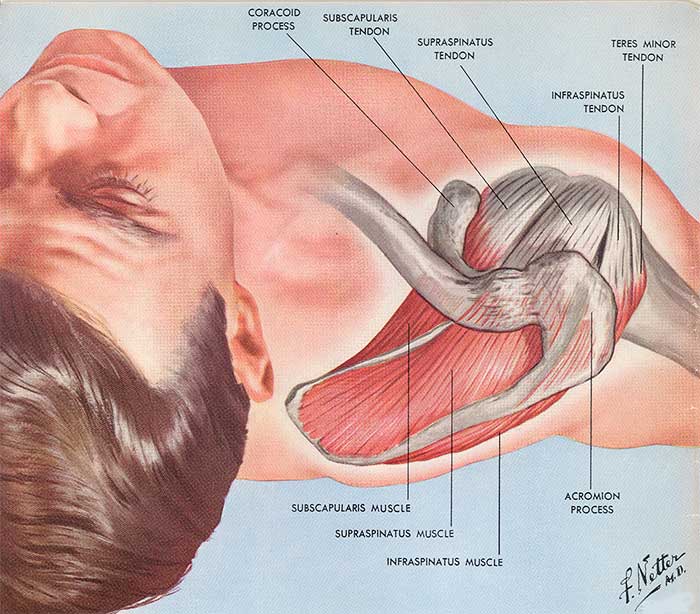 |
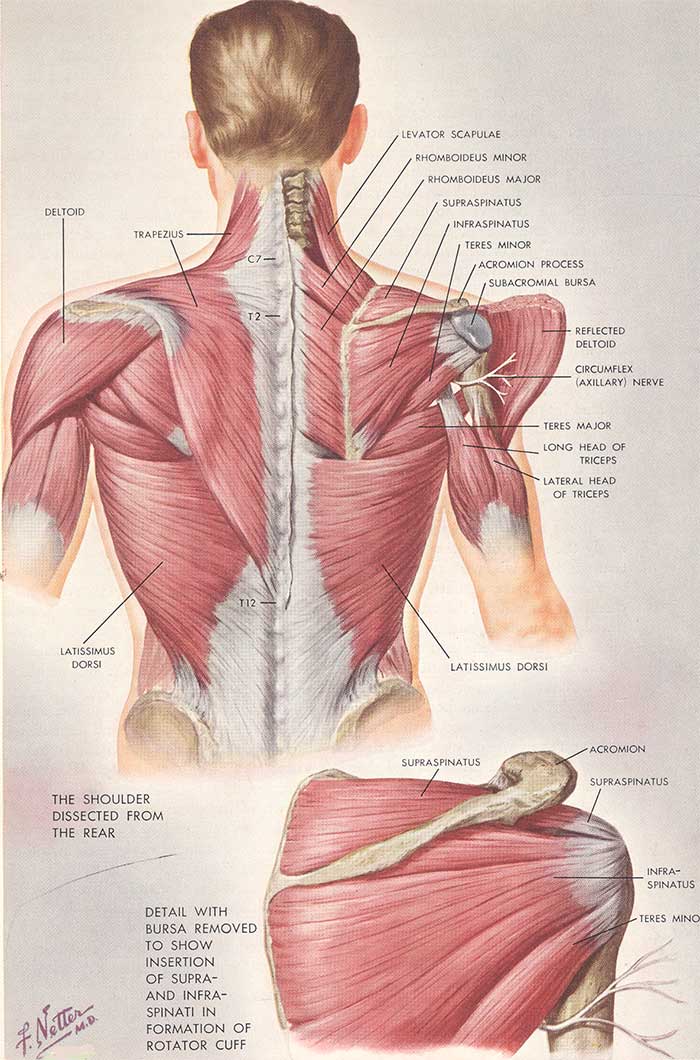 |
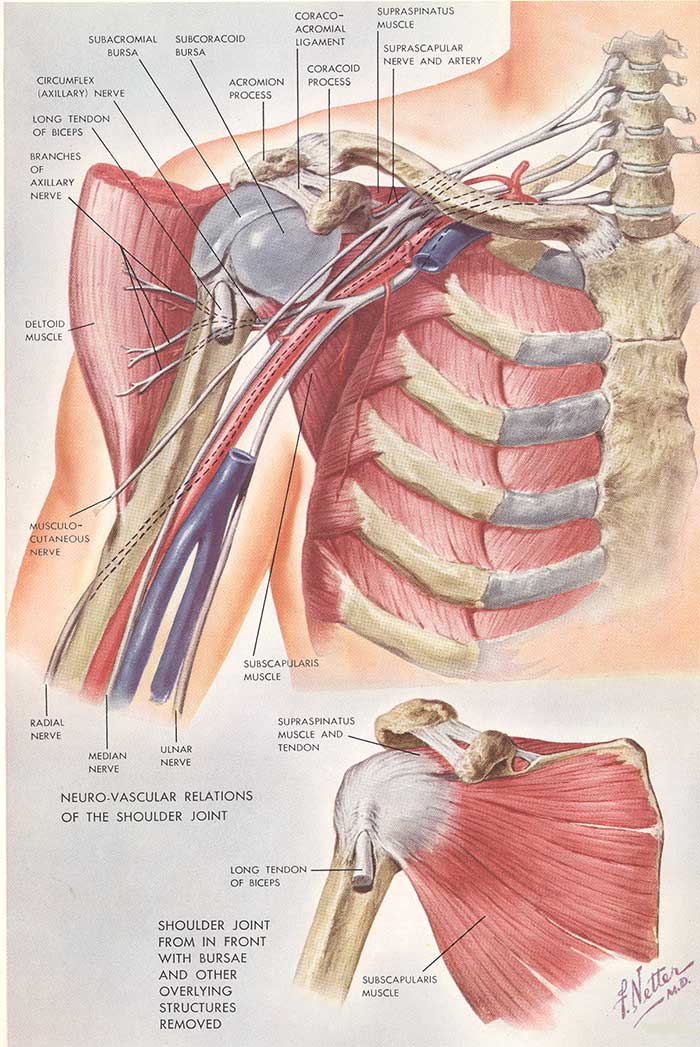 |
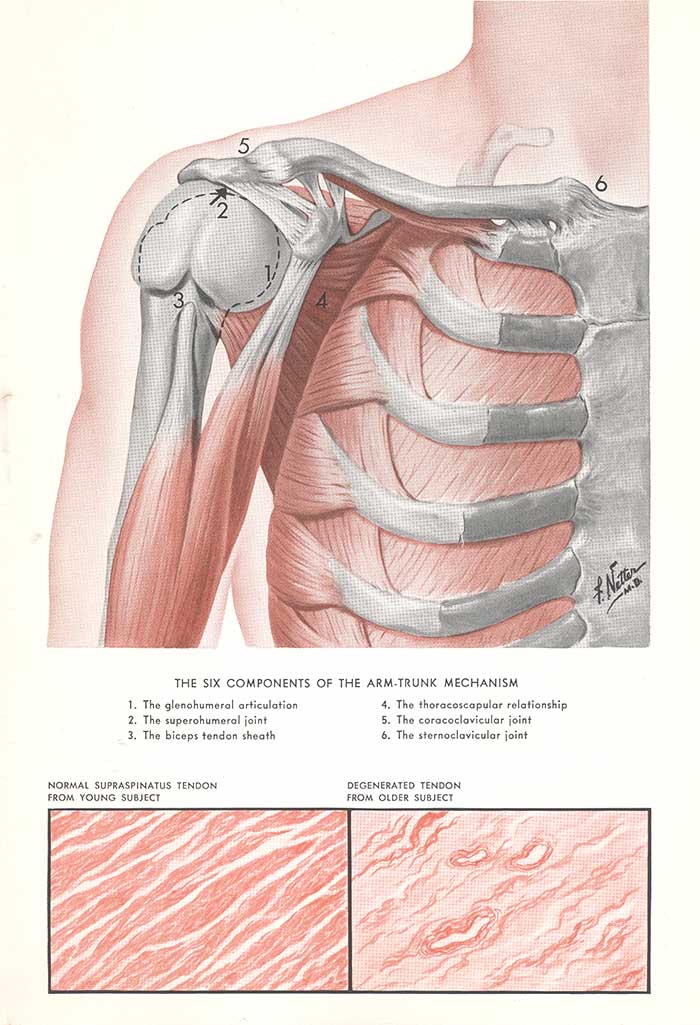 |
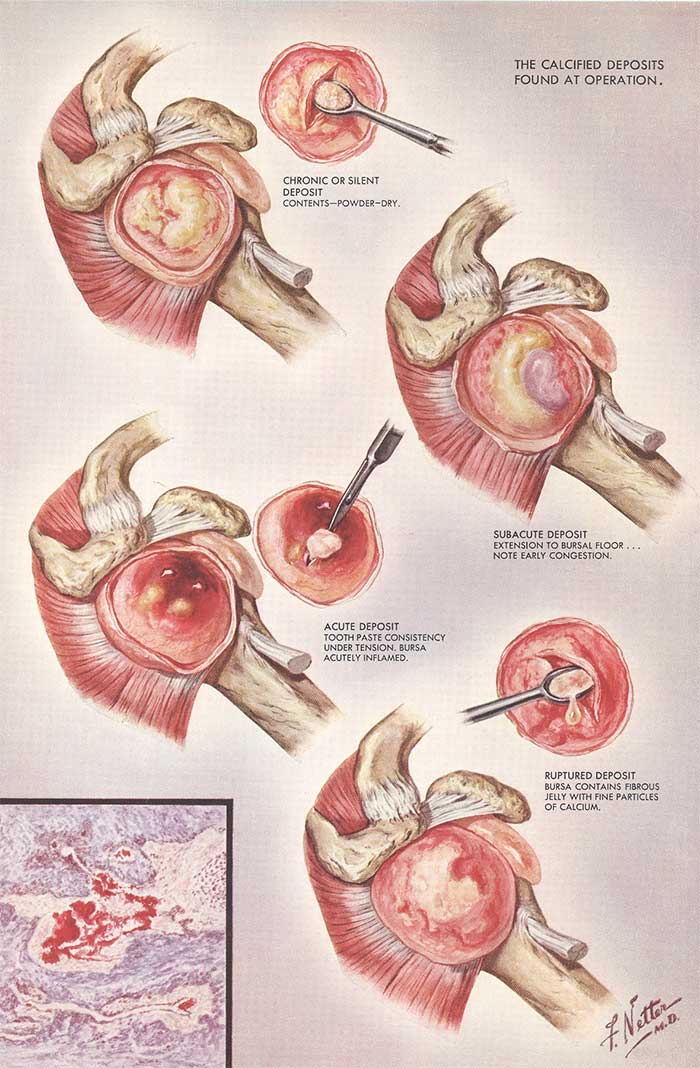 |
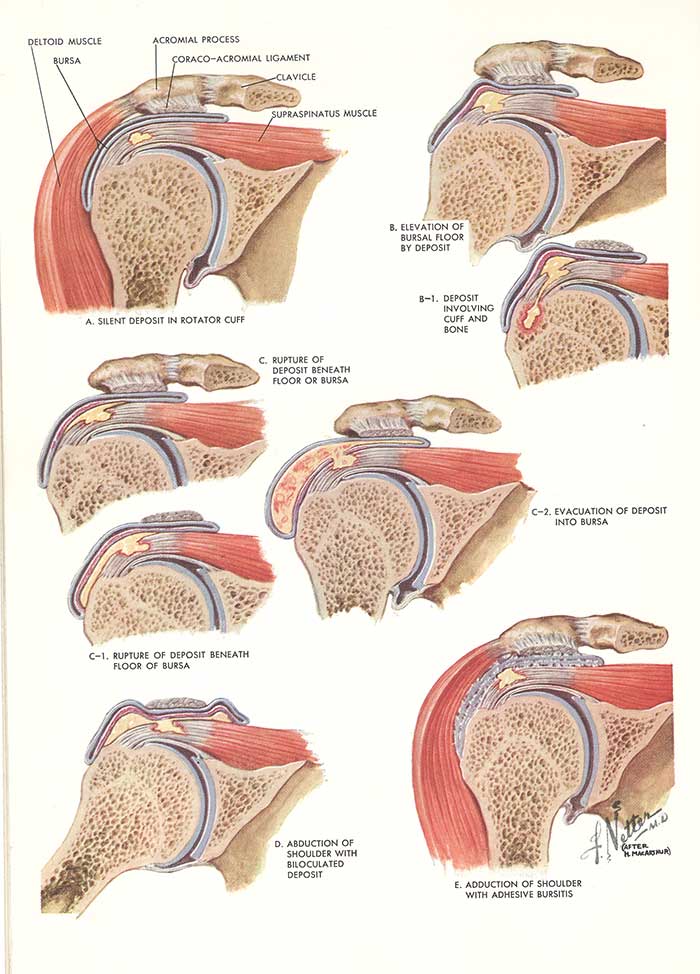 |
Frozen shoulder, glenoid capsulitis, rotator cuff injury and impaired mobility syndromes.
Anatomy, pathenogenesis, soft tissue and mobilisation concepts.
It has been my experience that non-surgical Shoulder joint problems such as frozen shoulder, glenoid capsulitis, rotator cuff injury and impaired mobility syndromes are very common and are extremely amenable to a mobilisation approach. They range from the acute, sudden swelling of a bursa to long standing cases of frozen shoulder.
Warning: The illustrations to the left are of pathological states and reflect only a small minority of shoulder joint problems. You might need surgery to fix greatly damaged tissues. You may have had surgery and need to improve the functions further, in which case my post-operative techniques can profoundly improve the strength of previously non-healed or partially healed wounds. The proper and diligent use of the vast array of mobilisation techniques can often mean that patients will be able to avoid further surgery.
The major predisposing factors
Muscle 'tethering' by the Pectoralis minor, Infraspinatus, Subscapularis and the Teres group. The deep fibres of Biceps are usually involved as well.
These tight muscles effectively 'hold' the head of the Humerus too far forwards in the socket and at the same time 'tether' the Humerus such that it cannot be lifted to its full potential range. There is frequently an extension of the irritation/pain pattern into the same side of the lower neck muscles. This syndrome, once established, can irritate the nerve supply to the area, thus amplifying the level of perceived pain and spreading it to adjacent areas.
This state of postural shortening of muscle groups can often persist for years such as in musicians who started playing as children. The long term effects of playing the Oboe, for example, where the arms are 'pinned' to the sides of the ribcage and the pectoralis minor is very tight and short in the front can be deleterious. At the same time the 'rotator cuff' muscles are also held rigidly. This has the effect of preventing external rotation and elevation of the arm. Thus, after years of this usage, the tethering will take place and the full range of shoulder joint movements will be lost unless stretched and mobilised.
The movement of the scapula at its joint with the acromion process is a big factor in overall loss of movement. For every fifteen degrees of movement at the shoulder joint there is one degree given by the acromio-clavcular joint and stern-clavicular joint. Persistent joint subluxations, usually a raised acromial head, can lead to inflammation and its spread into adjacent tissues such as the shoulder joint capsule.
A raised upper ribcage on the same side will predispose the shoulder mechanism to harm due to the eccentric axis of circumduction then assumed by the mechanism. It is a bit like having a flat tyre and the effect it has on the axis of steering and suspension, not good.
The main task is to establish which soft tissues are involved and where they are tight and short, to soften and lengthen them using deep (but not painful) massage and long lever articulation techniques.
Anti-inflammatories are useful if the condition is inflammed, swollen, hot and angry so long as your stomach and intestines can tolerate them. If you find they don't work within 24 hours then they probably won't at all. This is often due to the assumption that everything painful is inflammed. This is often not the case, pain can exist without inflammation.
If you wish to talk to me about this painful and distressing then please email me, I will try my best to advise you wherever you are. Click me....
07925 616 753
Location: 8-10 Boston Place, Marylebone, London NW1 6QH
Next to Marylebone Station, Main line trains and Bakerloo line